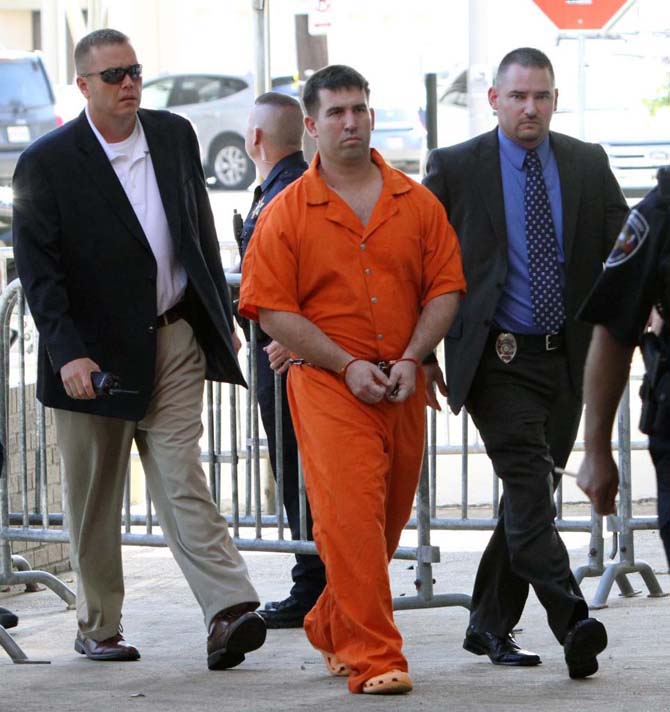Brandon Scott Lavergne, the Churchpoint man who was convicted for the murder of Mickey Shunick and Lisa Marie Pate, has complained of some unfair treatment in his Angola home within the past recent months.
Lavergne is threatening to file suit against the state for being in extended lockdown at Angola where he has been deprived of medical care, legal resources and contact family visits.
First, let it be known that those persons convicted by the law and rightly placed in prison are subject to the loss of certain rights given to law-abiding citizens by the Constitution. However, prisoners are protected from cruel and unusual punishment. A look into Lavergne’s claims should lead some to believe he has not exactly been subjected to cruel and unusual punishment.
What he means by this lack of medical care is not by any means life threatening. He is complaining about the C-PAP machine he has not been given to treat his sleep apnea.
Is this cruel and unusual?
Within the side effects of sleep apnea are daytime fatigue, maybe a slower morning, some restless nights and possible headaches or forgetfulness.
Tortuous right? Apparently, for a murderer and someone with such a strenuous daily agenda that he needs to be well rested.
As per his complaint of restriction from legal resources, this comes from his initiative to form an appeal on the basis that the legal counsel for his case was ineffective.
But how effective does a legal counsel need to be when the suspect pleads guilty in order to avoid the death penalty? Would one actually need legal counsel if he was going to sign a plea bargain? What kind of appeal could he have anyway? What could Lavergne get out of this appeal?
I wonder if there is a judge out there who would find it legally just to appeal Lavergne’s plea bargain, but then if there is a jury somewhere that would actually acquit a man in a case where the evidence does basically everything but provide a video account of what happened.
He is also deprived of contact visits with his family, restricted to an electrically monitored, closed circuit telephone, according to his complaints.
Is this not what most prisoners are subject to?
You know the phones we see on television shows and movies where the family sits on the other side of the glass. Next, we’ll hear that the single-ply toilet paper is too coarse and he has requested triple-ply.
But thinking of prisoners in general and what rights they have or should have — along with the high incarceration rate we have — we tend to question the integrity and productiveness of Louisiana’s prison system.
People find a large part of the problem is the rehabilitation of inmates, or lack thereof. There is a need for some kind of educational process in order to readmit these hardened criminals back into society as civilized citizens, or at least a prison environment that is more humane and conducive the needs of prisoners.
However, such programs should certainly focus on who are not murderers and rapists.
The criminals of Lavergne’s class have had such little regard for the sanctity of human life that it is really hard to justify catering to their petty needs like a C-PAP.
Compassion is a wonderful virtue we should all have and exercise, and trying to understand why these people did what they did will help us to prevent such gruesome events to occur again.
When push comes to shove, these criminals have already revealed what kind of perspective they have on the natural rights of others.
So why would they be given any more consideration than they gave to their victims?
They’re already privileged to keep their own lives, which is exactly what they took from their victims.





